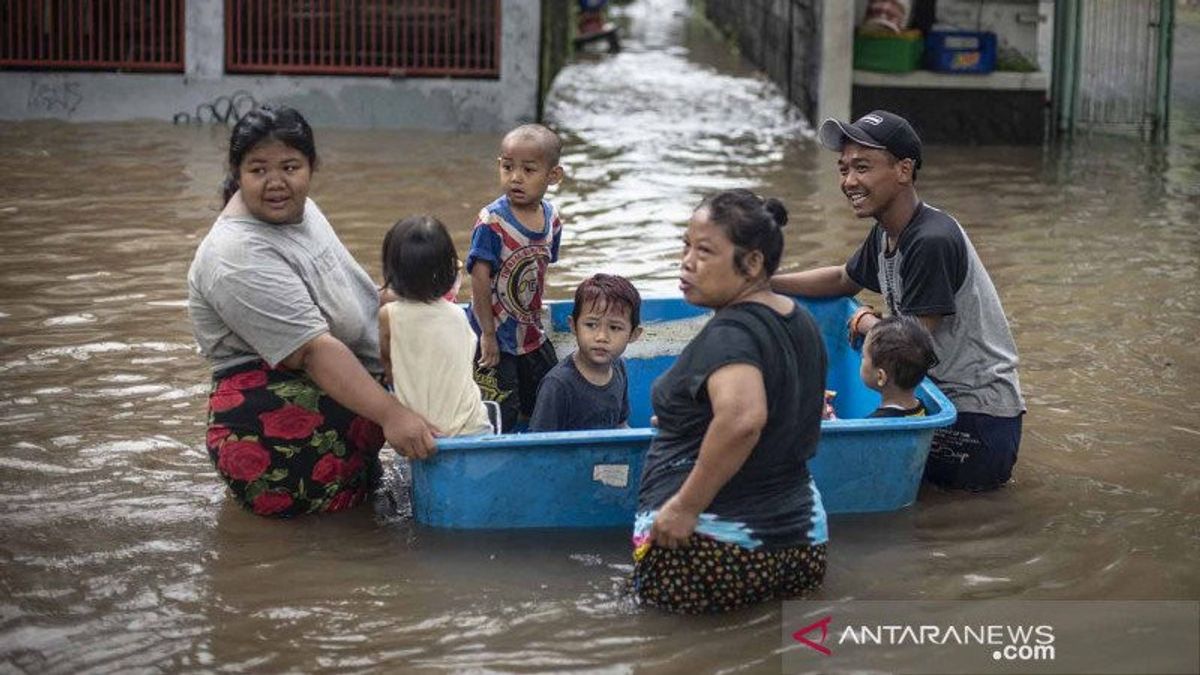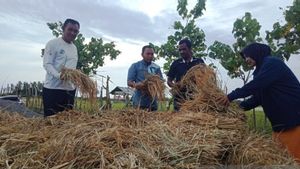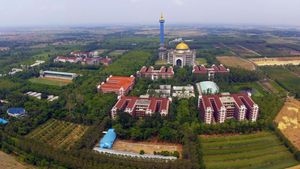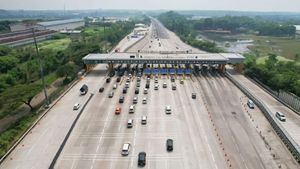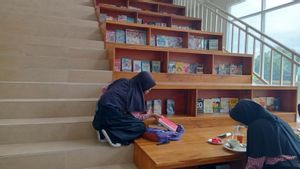JAKARTA - On June 22, the city of Jakarta entered the age of 496 years. At that age, Jakarta as the capital city of the country is still improving. There are a number of problems that have not been resolved to date.
Call it a flood problem. Zaenuddin HM in the book 'Banjir Jakarta' wrote that floods in Jakarta had occurred since the 5th century. The discovery of the Tugu inscription in North Jakarta is proof that Raja Tarumanegara, Purnawarman once excavated the Chandrabhaga River in the area around Bekasi and Kali Gomati in Tangerang as an effort to overcome flooding.
Conditions continued in the Dutch colonial era. The Governor of Batavia, as the city of Jakarta in the past, also had time to build a number of canals, such as the West Flood Canal to build floodgates in the Manggarai area.
However, these efforts still yielded no results. The increase in the number of people and the lifestyle of the people at that time who did not care about the cleanliness of the waterways was said to be the cause.
In today's era, conditions are not much different. Although various efforts have been made by building East Flood Canal in 2003, building a number of polders, preparing water pumps, reservoirs, revitalizing rivers, Jakarta remains a flood subscription.
Geographically, Jakarta is difficult to be free from flooding. In addition to its position on the coast, Jakarta is also traversed by 13 rivers, namely the Ciliwung, Angke, Pesanggrahan, Grogol, Krukut, Baru Barat, Mookevart, East Baru, Cipinang, Sunter, Buaran, Jati Kramat, and Cakung rivers. The land surface in Jakarta also continues to decline by 24 centimeters per year due to the massive development burden.
However, said urban planning observer Nirwono Yoga, that doesn't mean it's impossible. It's just a matter of how commitment from the government and the whole community is.
Expanding Green Open Space (RTH) by conservation of protected forests as water catchment areas, and revitalizing lakes or reservoirs as water catchment areas, according to Nirwono, is mandatory in overcoming floods.
Furthermore, river regeneration and drainage, as well as restoring coastal areas and deforestation of mangrove forests to complete the existence of embankments.
"The rehabilitation of all drainage is carried out by increasing the existing dimension, for example from 50 cm to 1.5m, 1m to 3m, 1.5m to 5m and connecting to the area, lakes, reservoirs, reservoirs, and nearest green open space," continued Nirwono as reported by VOI.
No less important is also to make people aware to care about environmental cleanliness and not to build buildings above the water channel.
Another problem that has not been resolved is congestion. Although the volume of the number of roads in Jakarta continues to increase over time, congestion is unavoidable because the volume of the number of vehicles also continues to increase.
In fact, according to the Tomtom.com site in 2022, the average travel time for a distance of 10 kilometers reaches 22 minutes 40 seconds.
Overcoming this, said Deputy Chairperson of the Regional Empowerment and Strengthening Division of the Indonesian Transportation Society (MTI) Center Djoko Setijowarno, Jakarta certainly cannot be alone, it requires supporting partners, including from buffer areas.
"Because, people who are active in the capital city, not only residents of Jakarta, there are also many people from Bogor, Depok, Tangerang, and Bekasi. Coordination can be done through the Jabodetabek Transportation Management Agency (BPTJ)," Djoko told VOI on June 22, 2023.
Djoko does not deny that the implementation of the Macro Transportation Pattern (PTM) program which includes the development of public transportation, traffic restrictions, and increasing road capacity has been going well so far. The existence of mass transportation in Jakarta has even been fairly representative.
The existence of Transjakarta buses that have been connected tofeeder (Jaklingko) transportation as feeder transportation, as well as support from other modes such as Jabodetabek KRL, Jakarta MRT, and Jakarta LRT as evidence.
However, not many private vehicle users want to switch to public transportation. That's why, it takes rules and policies that are coercive.
Existing policies such as 'three in one', odd-even, although they have not provided significant results, let it continue, while redesigning more effective rules and policies.
One of them, according to Djoko, is the discourse on implementing paid roads that have not been implemented so far. This can be a solution because there are many benefits that can be obtained, both in terms of economy, traffic, and the environment. This rule can also change people's behavior in traffic.
"In the past, there was also a policy of banning motorbikes which was eventually canceled by the Supreme Court (MA). Unfortunately, during discussions at the Supreme Court, the DKI Jakarta Transportation Agency was not invited to discuss this," said Djoko.
In fact, the restriction of motorbikes on Jalan MH Thamrin Sudirman has a positive impact on unraveling congestion. The DKI Jakarta Transportation Agency noted that the volume of vehicles decreased by 22.4 percent, the percentage of vehicle speed increased, originally 26.3 km/hour to 30.8 km/hour and travel time increased by 15 percent.
SEE ALSO:
Meanwhile, according to Polda Metro Jaya, reduced congestion nodes, decreased traffic violations. and decreased the number of accidents by 30 percent.
Then, bicycle lanes. Actually, this is also good with the hope that more and more residents in Jakarta will use bicycles for short-distance transportation, apart from walking. But it is necessary to enforce the law, motor vehicle parking activities on the side of the road are an obstacle to sterilizing bicycle lanes. I think this needs evaluation," Djoko revealed.
Even so, added Djoko, don't be discouraged, Even though you haven't been able to give maximum results to unravel congestion in Jakarta, at least Jakarta in 20 years has proven improvements in the problem of public transportation.
The English, Chinese, Japanese, Arabic, and French versions are automatically generated by the AI. So there may still be inaccuracies in translating, please always see Indonesian as our main language. (system supported by DigitalSiber.id)
